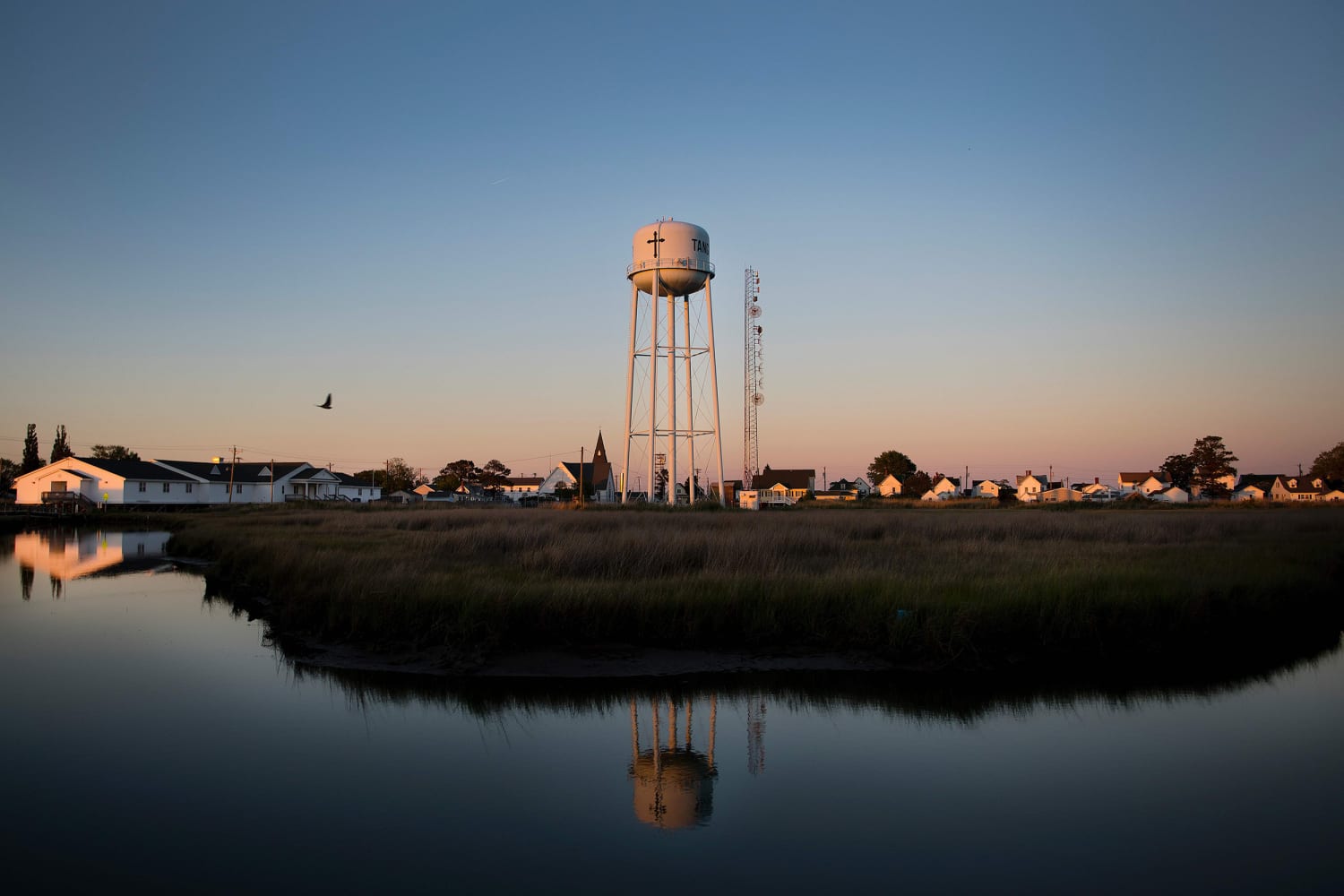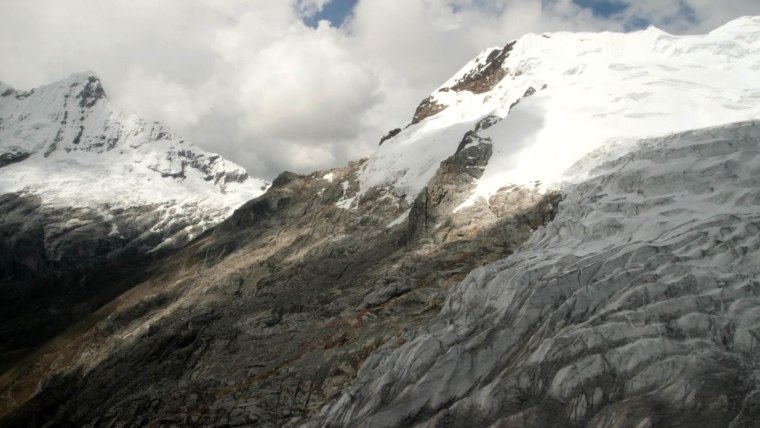It’s an image embraced by Eskridge, who welcomes reporters in hopes media attention might help save the island.
Eskridge said he’s personally not convinced humans are the cause of climate change, and he’s unsure what can — or should — be done about it.
“I think we need to adjust to it, but as far as stopping it, I’m not sold,” he said. In his view, it’s erosion that is bedeviling the island. (Sea level rise can exacerbate coastal erosion. The study found that sea level rise is driving the sinking of Tangier and that stopping coastal erosion alone wouldn’t save the town.)
While many Tangier residents might not agree that climate change is the culprit, they’ve watched their island shrink for decades.
Exodus by 2053
Last spring, when Zehao Wu, now 18, brought his computer into the family living room to show off the results of the project he’d been fiddling with for weeks, his dad “jumped out of his chair.”
For years, Schulte, Wu’s father, had been talking about Tangier Island around the dinner table, often venting frustration at how little action had been taken to help communities like it.
Schulte, a marine scientist based in Norfolk, Virginia, had published a paper in 2015 in Scientific Reports predicting Tangier might soon need to be abandoned. The 2015 study said the land mass was on pace to be lost in the next 50 years.
The paper stirred media interest but no commitment from policymakers to save the town. And Schulte felt that people misunderstood the cause of Tangier’s problems — that accelerating sea level rise is to blame.
In 2017, after CNN aired a segment that noted Tangier Island’s support of Trump, the president himself phoned Eskridge to tell him not to worry about sea level rise and that the town would last for hundreds more years.
Wu’s computer screen last spring said otherwise.
Data analysis of satellite mapping showed that Tangier Island had lost nearly 62 percent of its upland area since 1967.
“I was really astounded at the change. It was much larger than I thought I knew at that time,” Schulte said.
Over the next months, on weekends and after high school classes, Wu pulled up a bean bag chair beside his father’s desk, and the pair worked side-by-side to finish their paper explaining the pace at which data suggests seawater will saturate the island.
“My science teacher is really pumped,” said Wu, who worries that poor and disadvantaged communities will be left behind as the nation adapts to climate change.
The study paints a disquieting picture for Tangier Island. More than two-thirds of the island’s land mass is gone. Most individual properties now contain wetland areas. Two of the islands’ ridges are expected to become wetland in the 2030s, with the third expected to succumb by 2051, the paper states.
The rate of relative sea level rise has accelerated. A model of Tangier’s population decline, which predicts a total exodus by 2053, shows that it trends similarly to the decline in habitable land.
“You can’t live in a swamp,” Wu said.
Source: | This article originally belongs to Nbcnews.com










